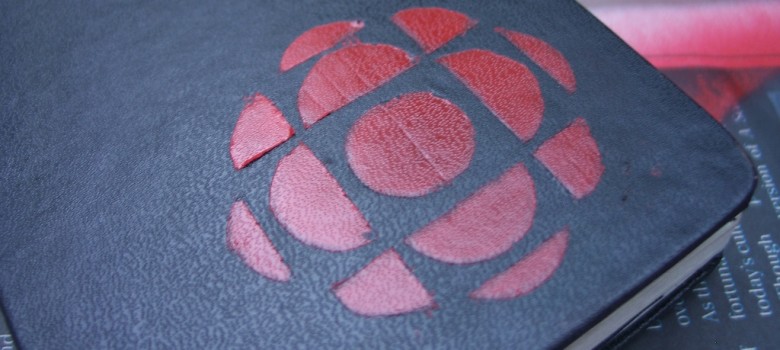My review of the The Shattered Mirror: News, Democracy and Trust in the Digital Age, the Public Policy Forum’s report on the future of media continues with a comment on long-overdue recommendation that unfortunately falls short of the mark (my first post on copyright reform recommendation is here). The report tackles the future of the CBC with three recommendations: increasing the emphasis of the CBC’s mandate on news, moving to an ad-free approach online, and adopting a Creative Commons licence for news content to help broaden distribution.
The recommendation of increased emphasis on news is a good one as is the call for an ad-free CBC online. I wrote in support of the CBC becoming an ad-free digital news competitor last year and while Ken Whyte offered up arguments against it (noting that the Canadian market needs more ad choices, not less), the online advertising competition has been a longstanding source of frustration for online media competitors who resent public support for CBC’s online presence.
The recommendation that I would like to like is the adoption of a Creative Commons licence for CBC news content. I have similarly argued for open licensing of CBC content for many years as part of its role as a public broadcaster. In 2014, I noted:
What the public often needs are the “raw materials” to enhance their content and better platforms to help distribute and market it. What if the CBC saw its public role primarily through that prism? It could continue to produce news programming, but openly licence its content so that Canadians could freely use it for their own creativity and storytelling.
In 2005, I made a similar recommendation, citing examples from Norway and the UK for how public broadcasters were actively using open licensing to enable new creativity that builds upon their work. In fact, many public broadcasters have adopted Creative Commons licences (or other open licences) to facilitate new works. Brazil’s Radiobras did so nearly ten years ago and still features a Creative Commons licence on its site. Other public broadcasters – including PBS in the U.S. and NHK in Japan have established open content libraries that allow users to create their own works.
So what is the problem with the Shattered Mirror recommendation? Unfortunately, it does not view the shift to Creative Commons as an opportunity to foster more creativity or commentary on the news. Instead, it merely sees it as an opportunity for further distribution. The report states:
There are seven types of Creative Commons licence. We recommend that the CBC use the “Attribution + No Derivatives” class, which would require those using its material to provide attribution and forbid the “remixing” of CBC content while allowing it to be monetized.
In other words, the goal is to allow others to post CBC content, but not actually use it to create anything new. The CBC has experimented with different forms of distribution in the past – it used BitTorrent to distribute the finale of the show Canada’s Next Great Prime Minister in 2008 – but the benefits of open licensing for a public broadcaster are about far more than just some additional distribution. In fact, opening the door to commercial re-distribution will raise its own set of competition concerns for existing players such as the Canadian Press. It is terrific to see the issue garnering some attention, but to truly “stake out a leadership position” (as the report suggests), shifting to non-commercial distribution and use of CBC content is needed.








make the CBC an isp.
with regiional mandates.
last time I looked, the cbc was saying, ” post it and it’s free forever, no matter how much money we make off it.”
slanted sterilized and stupid news.
between que using it as a platform, natives
and censorship, (like arresting sat-TV providers)
saturation will be a dollar late and a day short.
fun, tho. assuming porn-tv doesn’t smoke them out of the market.
packrat (FUD-4-U)
Moving to an ad-free approach online is a great approach.
Pingback: Our Daily Reading List – 08/02/2017 – Blog – Clausehound
Pingback: Don Gorges Archive of LinkedIn Posts and Links December 12 to February 15 | Don Gorges